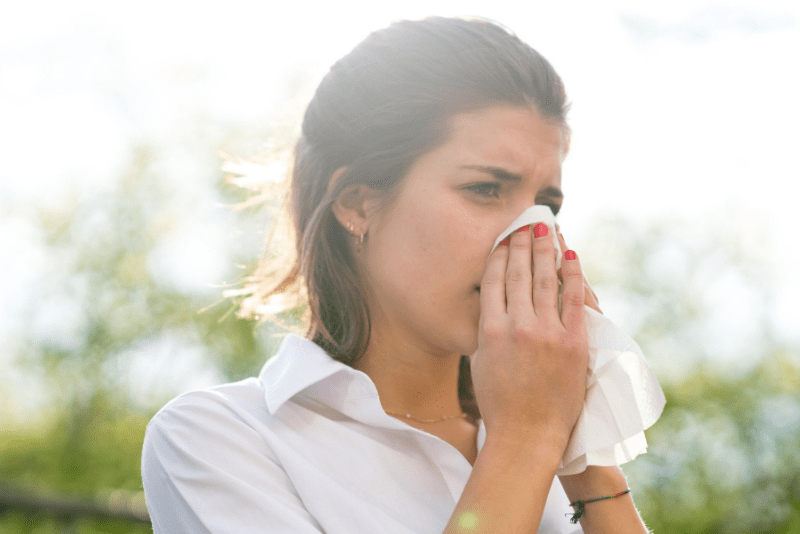More than 30 million people in the U.S. alone have one or more food allergies. In other words, their immune systems deem certain foods harmful and overreact by triggering symptoms such as hives.
Food allergies may not seem like a big deal, especially if you don’t have them or have only ever heard of or witnessed mild reactions. However, they are very serious. With that in mind, there are 10 things that people with food allergies want you to know.
1. Food Allergy & Food Intolerance Are Different
Intolerance to certain foods is a digestive reaction. Think lactose intolerance resulting in gas, diarrhea, nausea and similar symptoms.
Food allergies, on the other hand, are immune reactions and have the potential to be lethal. Therefore, it’s much appreciated when you take the food allergies of those around you seriously.
2. The Most Common Allergens
Eight foods are responsible for nearly 90% of all food-related allergic reactions. They are:
- Milk
- Egg
- Peanuts
- Tree nuts such as walnuts and pecans
- Wheat
- Soy
- Fish
- Shellfish such as shrimp and crab
Due to the prevalence of these allergies, all of these foods are required by federal law to be named when used in packaged food or when present in a facility where such food was prepared. So when shopping for someone with food allergies, read the labels carefully so you know what items to steer clear of!
3. Any Food Can Cause a Reaction
While the eight foods mentioned are responsible for the vast majority of allergic reactions, no food is off-limits. A person can develop an allergy to any food, which is a good reminder to take any and every mention of food allergies seriously. Just because one may not be common doesn’t mean it’s not real and potentially dangerous.
4. Reactions Are Unpredictable
Allergens can trigger either mild reactions such as hives and an itchy nose or severe ones such as repeated vomiting, difficulty breathing and worse. The trouble is that there’s no way to predict how severe a reaction will be. Even if previous reactions have been mild, there’s no guarantee that future ones won’t be life-threatening. Hence the importance of doing everything you can to help those with food allergies avoid foods that trigger their symptoms.
5. It Doesn’t Take Much to Trigger a Reaction
It doesn’t take a full serving of an allergen to cause a reaction. Depending on the severity of their allergy, a single bite, cross-contact or even being in a room with an allergen can be a trigger. Therefore, it’s critical to avoid the attitude that “just a little bit can’t hurt” and to be understanding when a person has to refuse an offer of food due to an allergy.
6. “Free-From” Labels Are Misleading
Claims like gluten-free and nut-free don’t always mean “100% free of.” Rather, they indicate that the amount of allergens contained in a food is under a certain threshold. So, technically, such foods may still have the potential to trigger allergic reactions.
The solution? Rather than relying on the labels on the front of packages, take a close look at the ingredients list when shopping for people with food allergies.
7. The Symptoms of Allergic Reactions
Allergic reactions can take their toll quickly and unexpectedly so you need to know the signs. Symptoms include:
- Hives
- Flushed skin or rash
- A tingling or itchy sensation in the mouth
- Face, tongue, or lip swelling
- Vomiting and/or diarrhea
- Abdominal cramps
- Coughing or wheezing
- Dizziness and/or lightheadedness
By far, the most serious reaction is anaphylaxis, which can cause breathing difficulties, sudden drops in blood pressure, swelling of the throat and loss of consciousness. Anaphylaxis is life-threatening and can set in minutes or even seconds after exposure to an allergen. Swift action is essential to reverse its effects, which brings us to our next point.
8. How to Help in Emergencies
Many people with food allergies have a treatment plan in place for emergencies. Such a plan often includes an epinephrine auto-injector, which should always be nearby in the event of a severe reaction. If a family member or friend of yours has food allergies, get informed beforehand about what to do if they ever have a reaction in your presence.
9. The Time Window For Reactions
As mentioned, many reactions happen within minutes of exposure. However, remain alert beyond that time as some reactions can be delayed by as much as four to six hours.
10. Stay Alert
Food allergies should be taken seriously by both the person who is allergic and individuals who spend time with them. If someone makes you aware of their food allergy, consider how you might help keep them safe and avoid any foods that may contain that allergen. If it is questionable as to whether a food contains a certain allergen, it’s best to keep things safe and avoid that food altogether. Your food-allergic friends will appreciate your support.
If you believe you may be experiencing symptoms to food allergies, our team of board-certified allergists offers allergy testing and can advise on the best form of treatment or symptom management. You may even be a candidate for oral immunotherapy! Learn more by requesting an appointment today.




